By Stephen Beaumont
Like a great number of modern craft brewery owners, Brad Clifford got his start via homebrewing. But unlike most amateur brewers turned pro, within a year of opening his Clifford Brewing in east Hamilton, he was the proud and happy recipient of the title of Canadian Brewery of the Year from the largest beer competition in the land, the Canadian Brewing Awards (CBAs).
Not bad for a guy who decided on his flagship beer, Clifford Porter, because he saw an opening for the style in the marketplace, while completely ignoring the possibility that said opening was there because the general beer drinking public wasn’t particularly interested in Porters.
The brewing bug bit Clifford, seen in very top photo, first in 2009, he recalls, and it didn’t take long for him to “really get into it.” Within his first year, he had joined the Canadian Amateur Brewers Association (CABA) and begun entering competitions, even scoring well in some of them. One of his early successes was, you guessed it, his Porter.

Buoyed by the positive feedback he received at CABA meetings and contests, Clifford took his first step toward becoming a professional brewer by convincing a bar-owning friend of his to allow him to set up a nanobrewery in the back room of his establishment. Said bar was Get Well, located on Dundas Street near the happening stretch of Ossington that ran south to Queen, and it wasn’t long before his beers began to generate some Toronto beer scene buzz.
“Basically I bought a little two-hectolitre brew kit and installed it in the back of the bar,” Clifford says, “We actually still have some of it at the brewery in Hamilton, which we use for test brews.”
Clifford’s success at Get Well between 2011 and 2012 got him thinking more seriously about opening a production brewery of his own, and the Toronto real estate market being what it was and still is, he decided to decamp to Hamilton in 2014. While he developed his brewery business plan and hunted for a space to call his own, he began producing two beers under contract with others, Clifford Porter and Pinball Wizard Pale Ale, both recipes he perfected at Get Well.
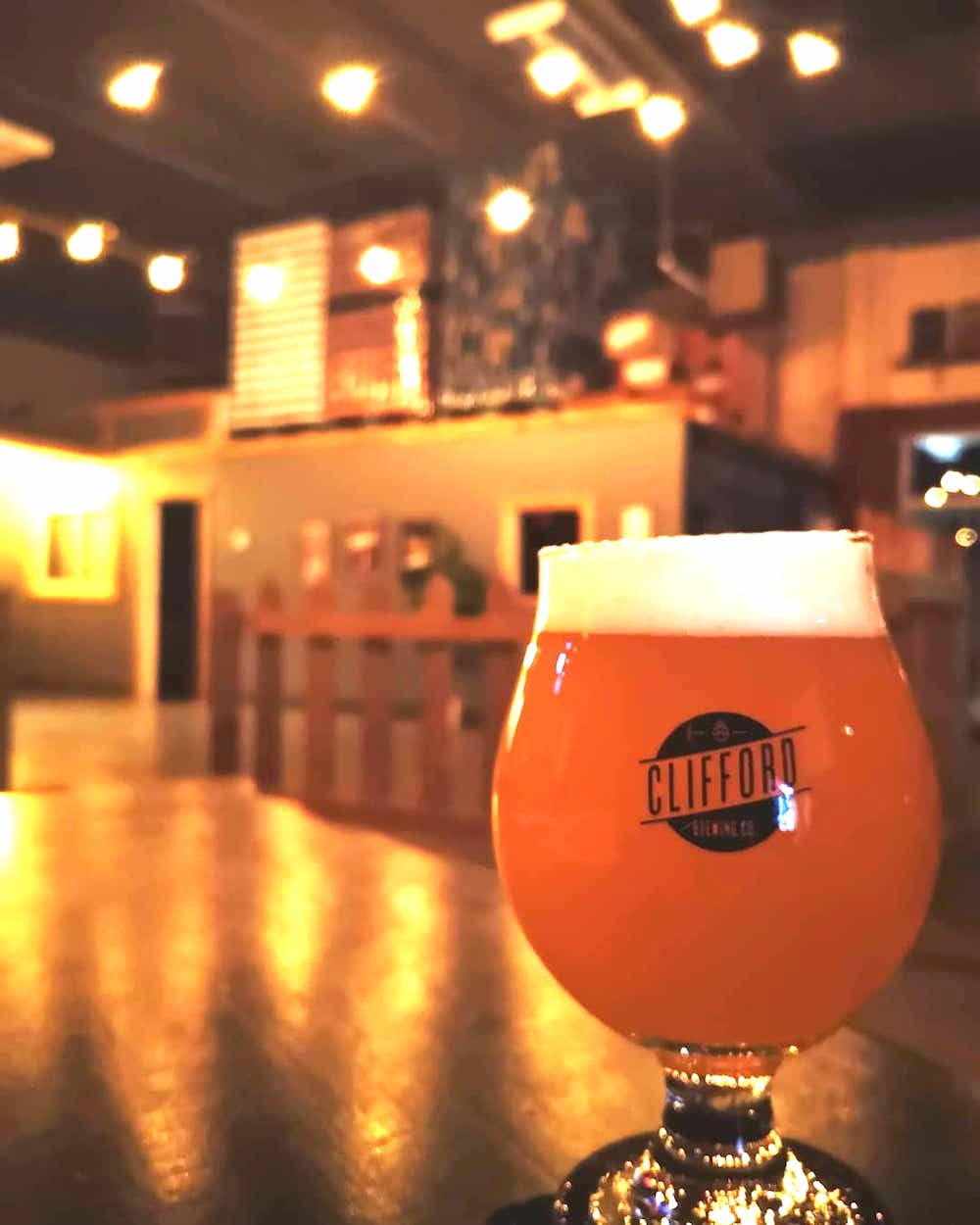
After a year of brewing around the region, first with Innocente Brewing of Waterloo, then after that brewery ran out of extra capacity, with a variety of others, Clifford had several landmark successes in relatively quick succession. First, he managed to get an LCBO listing for his contract-brewed canned beers in 2016, after which he found a building for his business in 2017, and opened the doors of his new brewery in 2018. Then came the big CBA win in 2019.
“Things had been going well year-to-year, even though once I opened the brewery I was doing pretty much everything myself,” Clifford says, “But growth really accelerated after the Brewery of the Year win.”
Even COVID hasn’t managed to slow Clifford down much. From opening with just three beers – Porter, Pinball Wizard and East Hamilton Lager – he is now producing no fewer than 16 different brands, and after he added regular live music matinees to his taproom events schedule in 2019, the brewery began to develop a bit of a reputation as an entertainment destination, as well.
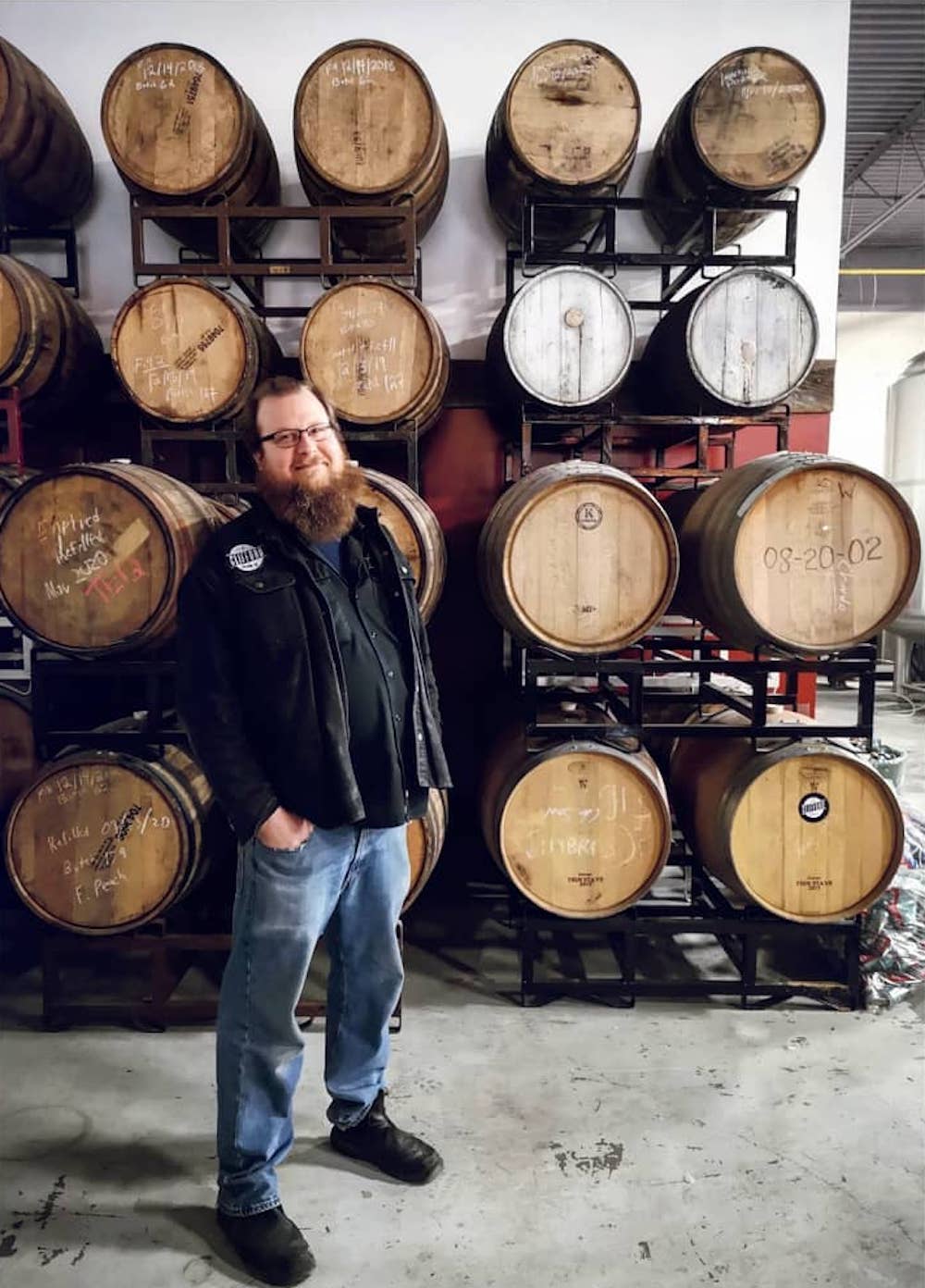
(The entertainment side is on hold for now, of course, but Clifford vows that “it will be back strong when we can safely host music again.”)
He’s also added an ‘Imperialized,’ 9% alcohol version of his Porter to the line-up. Perhaps to see if he can buck another trend and get as many people interested in strong Porter as he did the regular strength stuff.
A six-pack of Clifford Beer
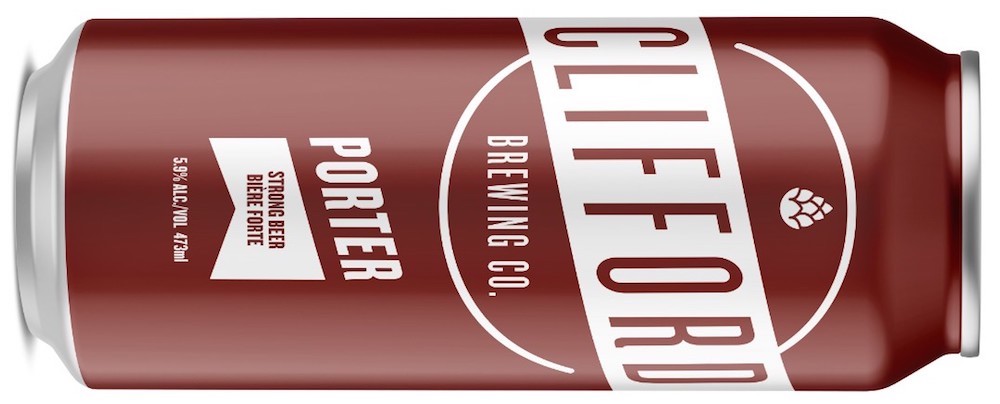
Porter (5.9%): Although the Porter style is not a fashionable favourite, this black ale is the beer that made Clifford’s reputation, and for good reason. The nose is rich and not too roasty, with a very pleasant mix of milk and dark chocolate notes against a raisiny backdrop – imagine an artisanal version of Glosettes. The start is soft and only slightly sweet, with a hint of charred wood leading to a very chocolatey mid-palate, again combining milk and dark chocolate flavours, along with a touch of espresso and a hint of burnt sugar. The finish has a faintly warming character, with lingering dark chocolate and mocha. A beer for converting the black beer-phobic among us.
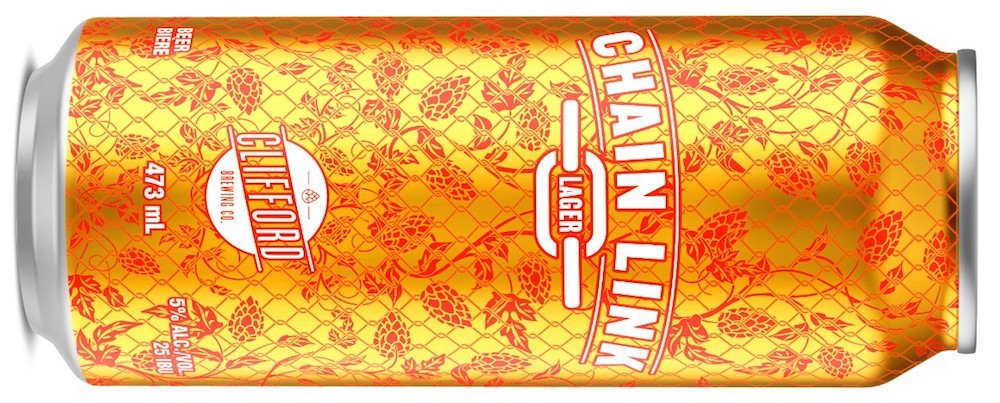
Chain Link Lager (5%): The evolution of the brewery’s Vienna Lager, a beer named for its style, this is unfiltered and so can be a bit hazy on the pour if agitated beforehand. It is nonetheless appropriately copper-coloured with dry caramel and hints of carnations on the nose, a mild, malty, caramelly sweetness that leads to an off-dry, slightly honey-ish and just faintly peppery body which dries towards the mildly bitter finish. Save for the haziness, a very nice and mostly traditional take on a too-rarely produced variety.
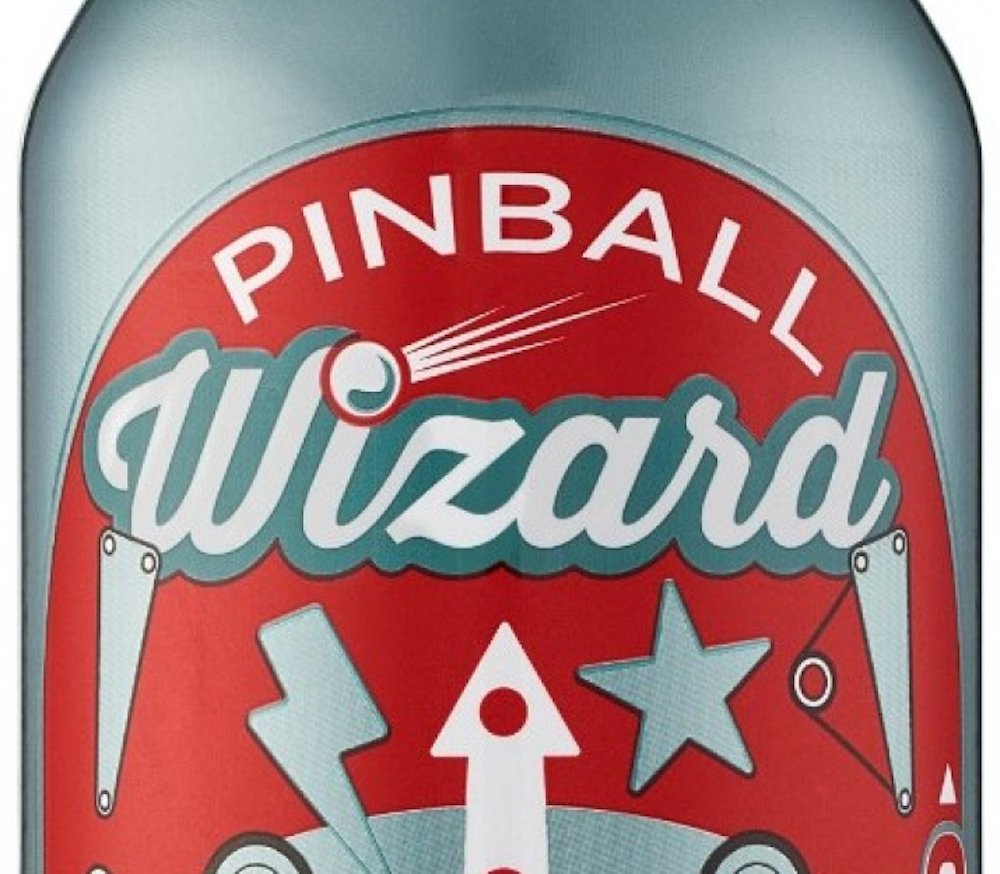
Pinball Wizard APA (5.7%): APA stands for American Pale Ale, which means that instead of the currently trendy tropical fruit-forwardness of a New England style pale ale, one should expect bold citrus flavours and actual bitterness, and the Wizard doesn’t disappoint. Although it is a bit hazy in its light gold countenance, the nose offers fresh lemon and pink grapefruit notes, while the body offers a bit of honey and red berry sweetness up front, followed by robust citrus notes and a bitterness that is balanced by honey-ish malt all the way to the lemon peel finish. Delightfully old school and charming for it.
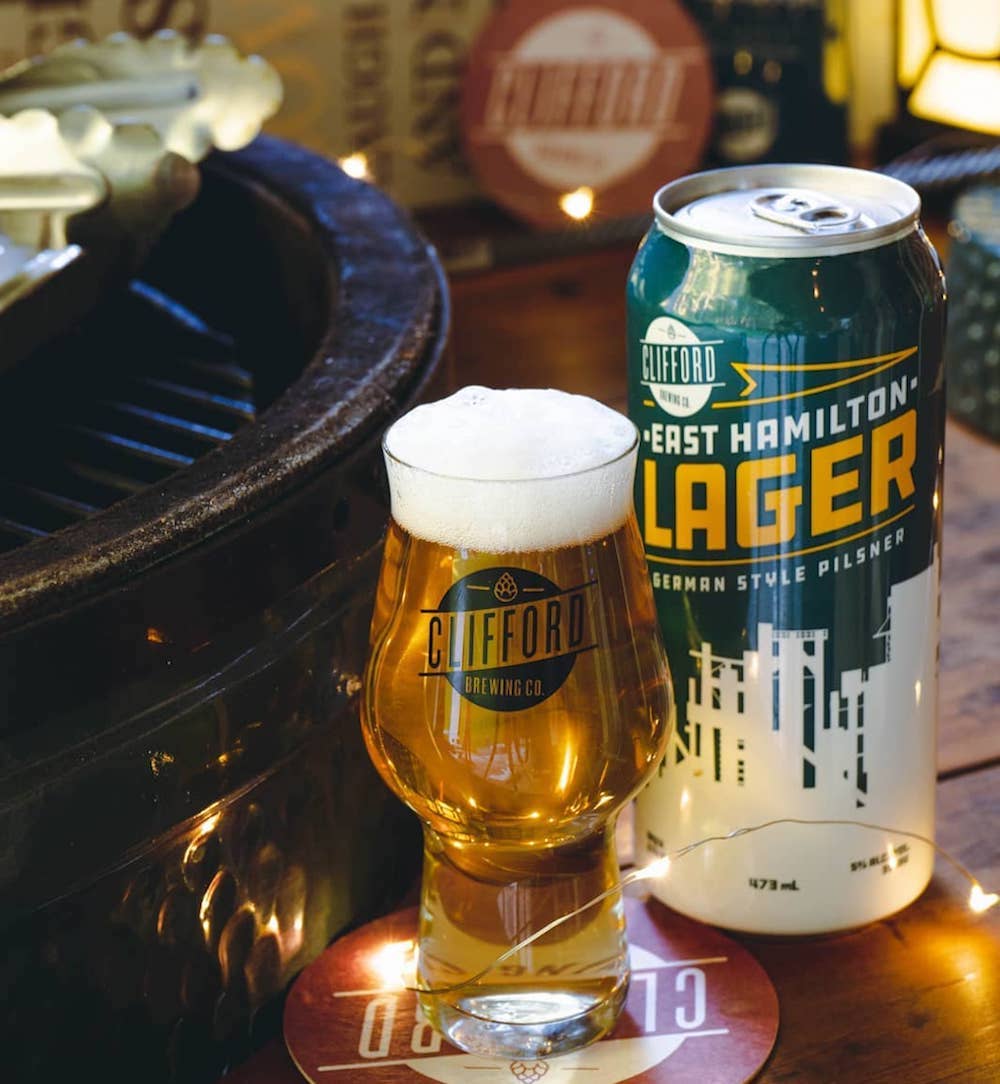
East Hamilton Lager (5%): Described on the can as a German style Pilsner, this is unfiltered and so, like the Chain Link, can pour slightly hazy. The aroma is a bit slow to open, but when it does reveals a delightful floral character and just a touch of icing sugar sweetness. The body certainly edges towards the Germanic, with a restrained malt presence and notable hop bitterness, but also has a touch of residual sugar one would be hard pressed to locate in a typical northern German Pils – not at all a bad thing, particularly for those who dislike strong bitterness in their beer. There is some bitterness, mind you, particularly on the bone dry finish, but not so much that it would daunt any but the most timid lager quaffers. A fine end-of-day refresher.
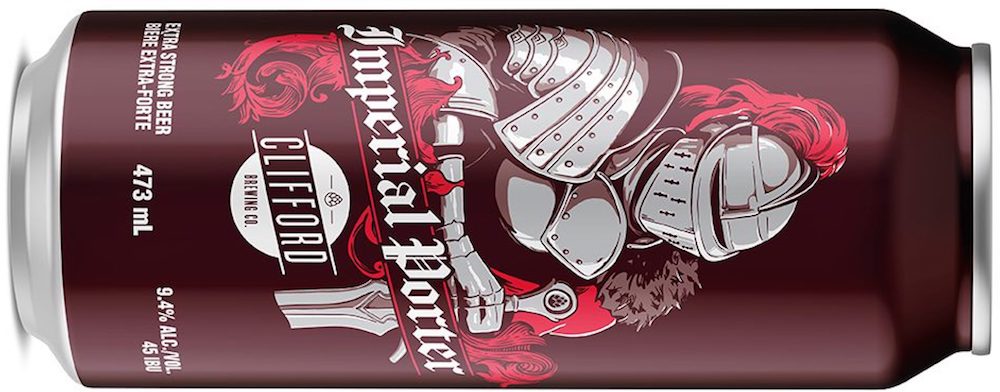
Imperial Porter (9%): Made with the same ingredients as the Porter, just a whole lot more of them, this quite unsurprisingly comes across as a super-charged version of the milder beer, with a richer and more concentrated chocolate aroma and a sweeter, mouth-filling, roasted toffee body that seems more mocha-ish than its lighter sibling. Think Italian espresso with a good dose of Sugar in the Raw and an 80% cocoa content chocolate wafer on the side. Serve with or in place of dessert, or sip in front of the fire late at night.
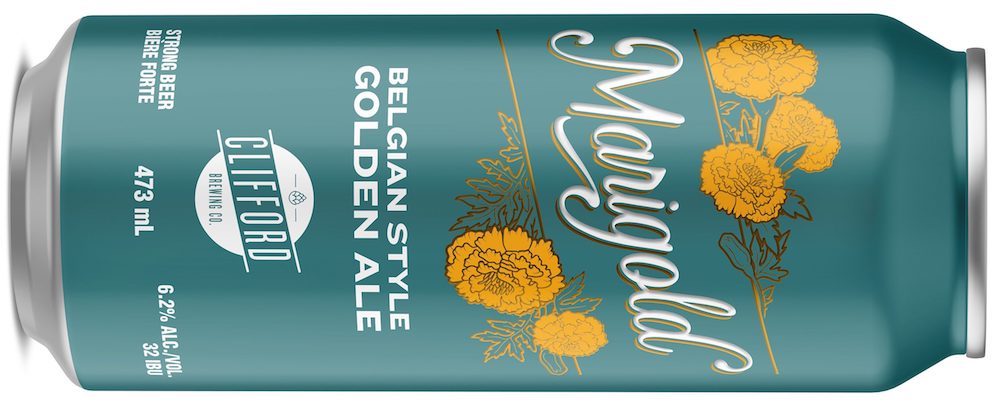
Marigold Belgian Style Golden Ale (6.2%): Medium gold with a faint haziness, this offers an attractive aroma of spicy clove, apricot, tangerine, and black pepper. The palate entry is soft and fruity, like an apricot-themed and not too sweet cotton candy, leading to a slightly peppery mid-palate with peach and pepper notes, ending with a drying and only slightly bittering touch of hoppiness and a subtle warmth. Thoroughly enjoyable, and a beer which has evolved over its lifespan in a very positive fashion.
About Stephen Beaumont
Stephen Beaumont is one of the world’s leading writers on beer and spirits, with 15 books to his credit, including Canadian Spirits: The Essential Cross-Country Guide to Distilleries, Their Spirits, and Where to Imbibe Them (with Christine Sismondo) and the upcoming, fully revised and updated third edition of The World Atlas of Beer (with Tim Webb).







Comment here